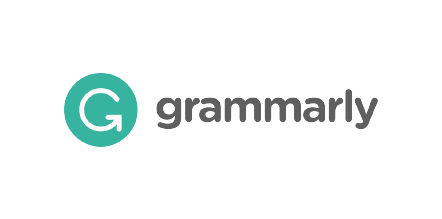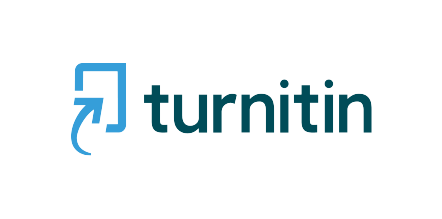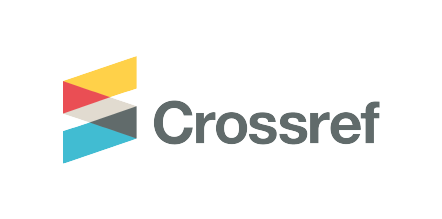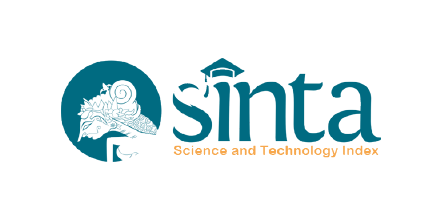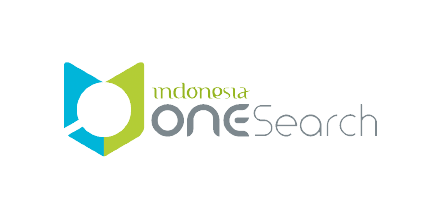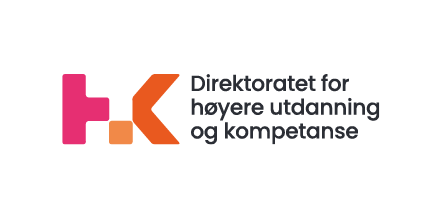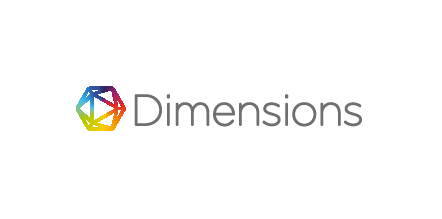Education Budget Politics: Is It Pro-Disabilities? Case of Yogyakarta Municipality, Indonesia
DOI:
https://doi.org/10.21776/ub.ijds.2020.007.02.15Keywords:
Education Budget, Policy, Persons with Disabilities, Yogyakarta CityAbstract
This article aims to examine the education budget policy allocated for inclusive education programs, wherein providing a budget is highlights. In this context, Yogyakarta City government is submit because of its embracement unto inclusive budget post for education. This paper used a qualitative approach with document-analysis method to analyze the inclusive education budgets from 2017 to 2019. The research findings are; first, the budget allocation for inclusive education is considering to be minimal when compared to other program budget posts. In 2017, budget allocation was only 1.02%, in 2018 amounted to 1.05%, and in 2019 1.19% of six programs set out in the educational development program objectives. Second, a critical review of the budget and realization of 2017 to 2019 inclusive education program has found to be not optimal absorbed as desired achievement targets. Even so, the evaluation of budget absorption includes in the high category on performance appraisal. Third, the number of inclusive schools and the percentage of teachers according to qualifications from 2017 to 2019 has been increasing. Fourth, the budget for the education development program in 2017 to 2019 has declined. Nevertheless, more importantly, the budget heading for inclusive management education in 2017 and 2019 has increased. Therefore, this has proven that the Yogyakarta City government has committed to realize inclusive education and deserves to establish as a region that cares about inclusive education.References
Afifah, W. (2018). Kebijakan Pemenuhan Hak Pendidikan Disabilitas Di Jawa Timur [Policy on Fulfilling the Right to Disability Education in East Java]. Seminar Nasional PPM, (8), 1552-1562.
Afifah, W., & Hadi, S. (2018). Hak Pendidikan Penyandang Disabilitas Di Jawa Timur [Educational Rights of Persons with Disabilities in East Java]. DiH: Jurnal Ilmu Hukum, 14(2), 85-101. https://doi.org/10.30996/dih.v0i0.1793.
Amka. (2019). Pendidikan Inklusif Bagi Siswa Berkebutuhan Khusus Di Kalimantan Selatan [Inclusive Education For Special Needs Students In South Kalimantan]. Jurnal Pendidikan Dan Kebudayaan, 4(1), 86-101. https://doi.org/10.24832/jpnk.V4i1.1234.
Andriansyah, A., Taufiqurokhman, T., & Wekke, I. S. (2019). Responsiveness of Public Policy and its Impact on Education Management: An Empirical Assessment from Indonesia. Management Science Letters, 9(3), 413-424. https://doi.org/10.5267/j.msl.2018.12.008.
Attache, C. (2019). Ensure Inclusive and Equitable Quality Education. Proceeding Book 7th Asian Academic Society International Conference, 5-9.
Bella, A., & Dartanto, T. (2018). Persons with Disabilities (PWD) and Poverty in Indonesia. Malaysian Journal of Economic Studies, 55(2), 167-188. https://doi.org/10.22452/MJES.vol55no2.2.
Bharata, R. W., Pramudyastuti, O. L., & Sunaningsih, S. N. (2020). Pengaruh Partisipasi Anggaran terhadap Senjangan Anggaran dengan Komitmen Organisasi sebagai Variabel Intervening [Effect of Budget Participation on Budgetary Slack with Organizational Commitment as Intervening Variables]. Jurnal Riset Akuntansi & Komputerisasi Akuntansi, 11(1), 158-178. https://doi.org/https://doi.org/10.33558/10.33558/jrak.v9i2.1589.
Boeltzig-Brown, H. (2017). Disability and Career Services Provision for Students with Disabilities at Institutions of Higher Education in Japan: An Overview of Key Legislation, Policies, and Practices. The Journal of Postsecondary Education and Disability, 30(1), 61-81.
Boonyaruttanasoontorn, J. (2019). Civil Politics of People with Disabilities to Make Their Education Rights a Reality. Journal of Social Work, 27(2), 71-102.
Bowen, G. A. (2009). Document Analysis as a Qualitative Research Method. Qualitative Research Journal, 9(2), 27-40. https://doi.org/10.3316/QRJ0902027.
Budiyanto. (2017). Pengantar Pendidikan Inklusif [Introduction to Inclusive Education]. Prenada Media.
Camilleri, M. A., & Camilleri, A. C. (2020). The Sustainable Development Goal on Quality Education. In The Future of the UN Sustainable Development Goals: CSR, Sustainability, Ethics & Governance, 261-277. https://doi.org/10.1007/978-3-030-21154-7_13.
Dempsey, I., Valentine, M., & Colyvas, K. (2016). The Effects of Special Education Support on Young Australian School Students. International Journal of Disability, Development and Education, 63(3), 271-292. https://doi.org/10.1080/1034912X.2015.1091066.
Emong, P., & Eron, L. (2016). Disability Inclusion in Higher Education in Uganda: Status and Strategies. African Journal of Disability, 5(1), 1-11. https://doi.org/10.4102/ajod.v5i1.193.
Flick, U. (2018). Designing Qualitative Research (2nd Editio). SAGE Qualitative Reserach Kit.
Halder, S., & Argyropoulos, V. (2019). Inclusion, Equity and Access for Individuals with Disabilities: Insights from Educators Across World. In Inclusion, Equity and Access for Individuals with Disabilities: Insights from Educators across World. https://doi.org/10.1007/978-981-13-5962-0.
Hanjarwati, A., & Aminah, S. (2014). Evaluasi Implementasi Kebijakan Pemerintah Kota Yogyakarta Mengenai Pendidikan Inklusi [Evaluation of Yogyakarta City Government Policy Implementation Regarding Inclusive Education]. Jurnal Inklusi, 1(2), 221-248.
Hanjarwati, A., Suprihatiningrum, J., & Aminah, S. (2019). Persepsi Penyandang Disabilitas Dan Stakeholder Untuk Mempromosikan Dan Mengembangkan Komunitas Inklusif Di DIY Dan Asia Tenggara [Perceptions of Persons with Disabilities and Stakeholders to Promote and Develop Inclusive Communities in DIY and Southeast . Jurnal Sosiologi Reflektif, 13(2), 379. https://doi.org/10.14421/jsr.v13i12.1625.
Harry, B. (2020). Childhood Disability, Advocacy, and Inclusion in the Caribbean. In Childhood Disability, Advocacy, and Inclusion in the Caribbean. https://doi.org/10.1007/978-3-030-23858-2.
Hui, N., Vickery, E., Njelesani, J., Cameron, D., Hui, N., Vickery, E., Cameron, D. (2017). Gendered Experiences of Inclusive Education for Children with Disabilities in West and East Africa. International Journal of Inclusive Education, 0(0), 1-18. https://doi.org/10.1080/13603116.2017.1370740.
Kauffman, J. M., & Anastasiou, D. (2019). On Cultural Politics in Special Education: Is Much of It Justifiable? Journal of Disability Policy Studies, 30(2), 78-90. https://doi.org/10.1177/1044207318822262.
Kumar, D. N. (2017). Open Access Education of Persons with Visual Disabilities in India. International Journal of Development Research, (September).
Kunnath, S. K., & Mathew, S. N. (2019). Higher Education for Students with Disabilities in India: Insights from a Focus Group Study. SAGE Publication, 6(2), 171-187. https://doi.org/https://doi.org/10.1177/2347631119840540.
Lestari, F. D. P., & Sujarwanto. (2017). Manajemen Pendidikan Inklusif Di Sekolah Menengah Pertama [Management of Inclusive Education in Junior High Schools]. Jurnal Pendidikan Khusus, 9(4), 1-13.
Manandhar, M., Hawkes, S., Buse, K., Nosrati, E., & Magar, V. (2018). Gender, Health and the 2030 Agenda for Sustainable Development. Bulletin of the World Health Organization, 96(9), 644-653. https://doi.org/10.2471/BLT.18.211607.
Nisa, L. S. (2019). Pemenuhan Kebutuhan Pendidikan bagi Penyandang Disabilitas di Kalimantan Selatan [Fulfilling Education Needs for People With Disabilities in South Kalimantan]. Jurnal Kebijakan Pembangunan, 14(1), 47-55.
Notoprayitno, M. I., & Jalil, F. (2019). Legal Culture Perspective in Implementation of Inclusive Education in Indonesia. 3rd International Conference on Special Education, 388, 122-127.
Nugraha, A. Y., & Wibowo, U. B. (2020). Analysis of Benefits and Obstacles from E-Budgeting Implementation in Educational Organizations. International Conference on Educational Research and Innovation, 401(65), 1-5. https://doi.org/10.2991/assehr.k.200204.001.
Nurmandi, A., & Purnomo, E. P. (2011). Making the Strategic Plan Work in Local Government: A Case Study of Strategic Plan Implementation in Yogyakarta Special Province (YSP). International Review of Public Administration, 16(2), 143-164. https://doi.org/10.1080/12264431.2011.10805200.
Ochoa, T. A., Erden, E., Alhajeri, O., Hurley, E., Lee, K., Ogle, L., & Wang, T. (2017). Disability Laws and Special Education Provisions in China, Kuwait, South Korea, Turkey, and the United States. International Journal of Special Education, 32(2), 325-354.
Oktadiana, R., & Wardana, A. (2019). The Implementation of Inclusive Education Policy for Disabled Student in Indonesia. International Conference on Special and Inclusive Education, 296, 47-50. https://doi.org/10.2991/icsie-18.2019.9.
Pujiastuti, R. T., Sujarwoto, M., & Hidayati, F. (2017). Preventing Students From Dropping Out of School In Indonesia's Basic Education: What Should Government Do? International Conference on Administrative Science, Policy and Governance Studies, 167, 141-146. https://doi.org/10.2991/icaspgs-icbap-17.2017.28.
Purnomo, E. P., Obisva, G., & Astutik, Z. A. (2019). Smart Government: The Involvement of Government towards Public Services. International Conference on Public Organization, (August), 28-30.
Rahajeng, U. (2013). Peran Pemerintah Kota Yogyakarta Dalam Pemenuhan Hak Pendidikan Kaum Difabel [The Role of Yogyakarta City Government in Fulfilling the Education Rights of People with Disabilities]. Universitas Negeri Yogyakarta.
Ratnaningsih, N., Arhasy, E. A. R., & Hidayat, E. (2015). The Analysis of Dyscalculia Students Learning Difficulty in Inclusive Education of Primary School Level in Tasikmalaya. Journal of Education, Teaching and Learning, 4(1), 238-243. https://doi.org/http://dx.doi.org/10.26737/jetl.v4i1.997.
Razzaq, A., & Ridho, S. L. Z. (2019). The Education Measurement Specific Effect on Sustainable Development: An Experience of Indonesia. Advances in Economics, Business and Management Research (AEBMR), 92(Icame 2018), 258-262.
Rohmawati, E. (2018). Customer Relationship Management (CRM) Yayasan Pendidikan Arrosidiyah. Jurnal Al Tahdib, 8(1), 73-84.
Roslina, D., & Rahayu, E. (2019). Implementation of Social Assistance for Persons with Intellectual Disabilities. Asian Social Work Journal, 4(3), 1-8.
Santoso, D. (2019). Administrasi Publik: Sustainable Development Goals (SDGs) [Public Administration: Sustainable Development Goals (SDGs)] (First Edit). https://doi.org/1674.37.60.2019.
Sari, R. (2020). The Implementation of Inclusive Education in Yogyakarta's Primary Schools. International Conference on Educational Psychology and Pedagogy, 399(Icepp 2019), 194-197. https://doi.org/10.2991/assehr.k.200130.112.
Sprunt, B., Deppeler, J., Ravulo, K., Tinaivunivalu, S., & Sharma, U. (2017). Entering the SDG era: What do Fijians prioritise as indicators of disability-inclusive education? Disability and the Global South, 4(1), 1065-1087. Retrieved from www.dgsjournal.org.
Sukri, M., & Indartono, S. (2020). Fulfillment of Education Rights for Diffable Students. 2nd International Conference on Social Science and Character Educations, 398, 122-124. https://doi.org/10.2991/assehr.k.200130.026.
Sunandar, A., & Dian Firdiana, A. (2017). Management of Special Education: Study of Effectivenes on Inclusion Education Service. 3rd International Conference on Education and Training, 128(Icet), 265-267. https://doi.org/10.2991/icet-17.2017.46.
Tigere, B., & Moyo, T. (2019). Actualizing the Rights of People Living with Disabilities (PWDS) in Development Policies , Planning and Programming in Africa: A Review of Selected Country Experiences. The 4th Annual International Conference on Public Administration and Development Alternatives, (July), 58-66.
van Nguyen, H., Do, H. T. H., Le, V. T. A., & Mai, N. A. (2018). Reviewing the Latest National Policies and Services for People with Severe Mental Health Disorders in Government-funded Institutions in Vietnam, and Policy Recommendations for Service Improvements. Asia Pacific Journal of Social Work and Development, 28(1), 56-68. https://doi.org/10.1080/02185385.2017.1418417.
Veranti, A. (2017). Sekolah Penyelenggara Pendidikan Inklusif [School of Management of Inclusive Education]. Jurnal Manajer Pendidikan, 11(6), 495-503.
Wahyuni, E. S., Soejoto, A., & Sakti, N. C. (2019). The Domestic Investment, Local Government Revenue and Government Expenditure in the Education Sector. Jurnal Pendidikan Ekonomi Dan Bisnis (JPEB), 7(2), 165-174. https://doi.org/10.21009/jpeb.007.2.8.
Waldes Hasugian, J., Gaurifa, S., Blandina Warella, S., Haries Kelelufna, J., & Waas, J. (2019). Education for Children with Special Needs in Indonesia. Journal of Physics: Conference Series, 1175(1). https://doi.org/10.1088/1742-6596/1175/1/012172.
Wibowo, S. B., & Muin, J. A. (2018). Inclusive Education in Indonesia: Equality Education Access for Disabilities. KnE Social Sciences, 3(5), 484. https://doi.org/10.18502/kss.v3i5.2351.
Wicaksono, I., & Diamantina, A. (2019). Access to Justice for People with Disabilities in Employment Imam. Jurnal Hukum Volkgeist, 4(1), 134-139. https://doi.org/https://doi.org/10.35326/volkgeist.v4i1.402.
Widinarsih, D. (2018). Disability Inclusion and Disability Awareness in Muslim Society: An Experience of Indonesians Muslim with Disability in Performing Worship. International Conference on Diversity and Disability Inclusion in Muslim Societies, 153(Icddims 2017), 94-99. https://doi.org/10.2991/icddims-17.2018.20.
Wiesel, I., Whitzman, C., Gleeson, B., & Bigby, C. (2019). The National Disability Insurance Scheme in an Urban Context: Opportunities and Challenges for Australian Cities. Urban Policy and Research, 37(1), 1-12. https://doi.org/10.1080/08111146.2018.1481026.
Wood, L. M., Sebar, B., & Vecchio, N. (2020). Application of Rigour and Credibility in Qualitative Document Analysis: Lessons Learnt from a Case Study. Qualitative Report, 25(2), 456-470.
Yuantini, G. (2019). The Islamic View toward People with Disabilities in Education Policy in Indonesia. International Journal on Islamic Educational Research, 3(1), 54-65. https://doi.org/10.24014/jush.v25i2.3916.5.
Yuwono, I. (2017). Indikator Pendidikan Inklusif [Indicators of Inclusive Education] (Mashud, Ed.). Sidoarjo: Zifatama Jawara.
Downloads
Published
How to Cite
Issue
Section
License
Copyright (c) 2020 Al Fauzi Rahmat, Eko Priyo Purnomo, Dyah Mutiarin, Ajree Ducol Malawani

This work is licensed under a Creative Commons Attribution-NonCommercial 4.0 International License.







